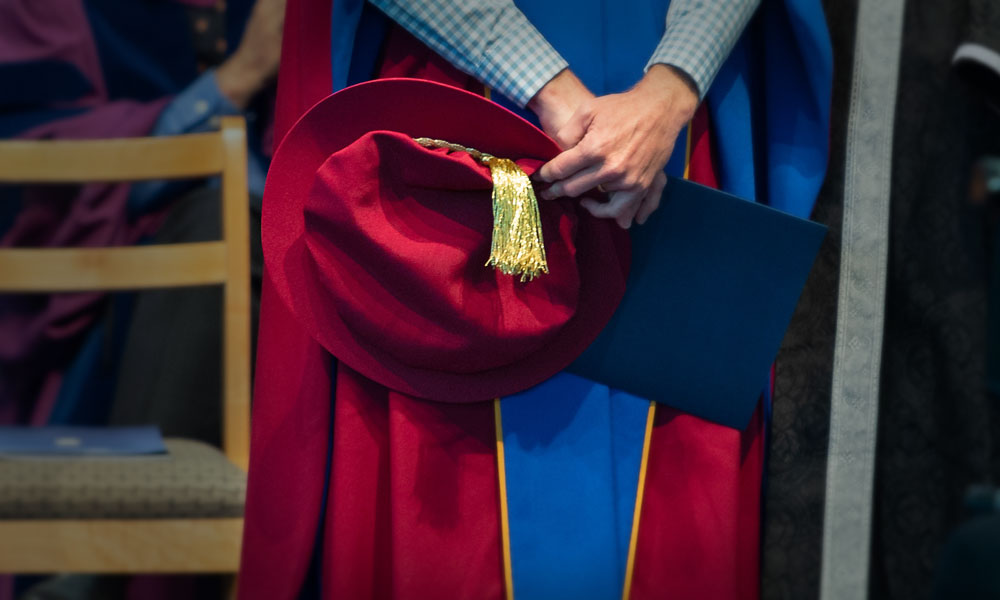
STUDENTS CHOOSE GRADUATE STUDIES FOR A NUMBER OF REASONS. For some, their chosen profession requires it, while others want to change career paths or advance more quickly in their current roles. Many others want to conduct high-level research in an area close to their hearts or one that can change the world.
Opportunities like these are enabled by in-depth study, the result of years of inquiry and investigation that extends beyond the learnings gained in a bachelor’s degree. In fact, at global research universities like UBC Okanagan, graduate students play an important role in contributing to the innovation and discovery currently shaping our communities and our planet.
And UBCO wants to see this impact grow.
In its ambitious visioning plan, Outlook 2040, UBCO is calling for rapid growth in its graduate programs through the introduction of 30 new programs by 2025 and a threefold increase in graduate enrollment — to 3,000 students — by 2040.
Each new program created presents a unique opportunity for students to make history. When UBC created the Public Humanities Hub, Rina Garcia Chua was the first research assistant to be hired to support an Okanagan hub, while Mohsen Zardadi and John Perrott count themselves among the first to graduate from the newly-developed Master of Data Science (MDS) and Master of Management programs. In spring 2020, Perrott will also take part in the first graduation ceremony at UBC to be delivered completely online.
While every student experience is unique, graduate students at UBCO often share one commonality: a strong appreciation of the world-class academic programs offered within a supportive community. It’s this environment which has helped each of these students excel along a path marked by firsts.
Graduate Studies By the Numbers
Top 5 Countries

UBCO Alumni
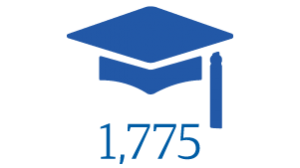
Gender Distribution
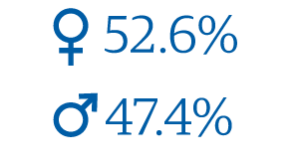
A close-knit, supportive learning community
Sometimes one unexpected event can change the course of your life. For Rina Garcia Chua, it was reading a book titled Ecocriticism, written by Faculty of Creative and Critical Studies’ Professor Greg Garrard.
Until then, Garcia Chua was living and working as a teacher in her native country, the Philippines, where she had just finished her Master’s degree in Literature. She never considered a PhD, but her mind was open and searching for ways to combine her interests in teaching, literary criticism and the environment.
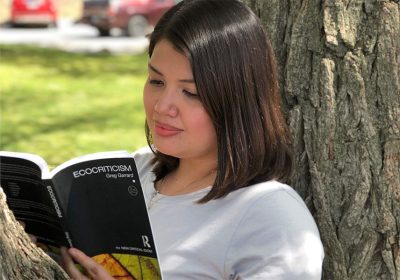
“I’ve experienced a lot of natural disasters in my lifetime living in the Philippines,” she says. “I was stranded in the floods of 2009 [which caused 789 deaths and $6.2 billion in damages] and survived, so environmentalism and climate change are really important issues to me.”
The book introduced her to the emerging field of ecocriticism, which analyzes literature that engages with nature and the environment from an interdisciplinary point of view. It inspired her so much that when she heard Garrard was soliciting manuscripts in 2013/14, she submitted her Master’s degree thesis.
“I was overwhelmed and honoured when Professor Garrard expressed interest in supervising me,” Garcia Chua recalls. “I jumped at the opportunity, left my job and my home and moved to Kelowna in 2016 without ever having seen it. Now, four years later, I’ve finished all of the requirements, except for the dissertation, for my PhD in Interdisciplinary Studies.”
Garcia Chua’s PhD thesis, “The Ecological Literacy of a Migrant Ecocriticism,” focuses on cross-cultural analyses of ecological poetry from Canada and the Philippines, with an emphasis on Indigenous and Migrant works. “Poetry has value in the way culture has perceived it,” she explains. “As a teacher, it can be used to create a space for productive conversation in the classroom.”
Garcia Chua is also the first graduate research assistant for the newly-created Public Humanities Hub. The initiative was designed to bring together the university’s brightest thinkers in the humanities to explore emerging public policy questions and better pave the way for developing viable solutions.
“I want to teach, write and nurture students the way I’ve been nurtured here at UBC.”
“Being part of the Hub has been a rich experience that has allowed me to explore what public humanities is and how central it is to my own work as a scholar,” explains Garcia Chua. “It aligns with what I stand for in my research, which is collaboration, public engagement, interdisciplinary studies and collegiality.”
When she completes her degree, Garcia Chua plans to continue the work she is doing and pursue an academic career.
“I want to teach, write and nurture students the way I’ve been nurtured here at UBC,” says Garcia Chua. “Professors here get to know everyone on a personal level. During my first year of studies, I lived at the Woodhaven Eco Culture Centre, which is a cabin the woods. They would check up on me all the time,” she fondly recounts.
In an ideal world, Garcia Chua hopes to stay in Canada, preferably in British Columbia, where she loves hiking, being in the woods and camping. And that desire has flourished thanks to her time at UBCO.
“I’m very happy with the life I have here in Kelowna,” she says. “The community is very close-knit. I know almost everyone who comes in and out of the Interdisciplinary Graduate Studies program, and I really appreciate that.”
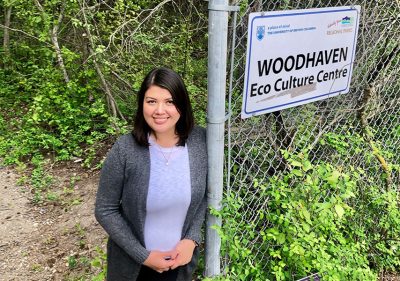
The first MDS graduate to get a job
Garcia Chua isn’t the only international graduate student to become enamoured with Okanagan life after attending UBCO.
Master of Data Science alumnus Mohsen Zardadi moved to Kelowna from Metro Vancouver to pursue a graduate degree and landed a job offer three months before he graduated. Now, he’s settled in Kelowna with his family and works as a data scientist at TerraSense Analytics.
“I’m involved in using artificial intelligence to analyze data and train neural networks,” he explains.
In one project, Zardadi works on military aerial surveillance systems to enable aircraft operators to analyze data in real time and gain critical intelligence. Using airborne data and deep learning on cutting edge devices, he trains neural networks to track mobile targets and classify objects from different sensors in real time.
“UBC has a stellar global reputation, so I had no doubt that the newly-created Master of Data Science program would be outstanding.”
“The Master of Data Science program at UBC Okanagan was a game changer for me,” he says. “It gave me expertise and taught me how to find the tools I need to solve these kinds of problems. And, being surrounded by highly-educated professors and students gave me much more confidence than I had before.”
The program was also a personal game changer for Zardadi, who says he felt like he was home as soon as he arrived.
“Although it’s only a four-hour drive from Vancouver, the people in the Okanagan are different,” he says. “They’re easy to talk to and easy to connect with. I knew it would be a good city to live in and raise kids, so I went out and looked for a job.”
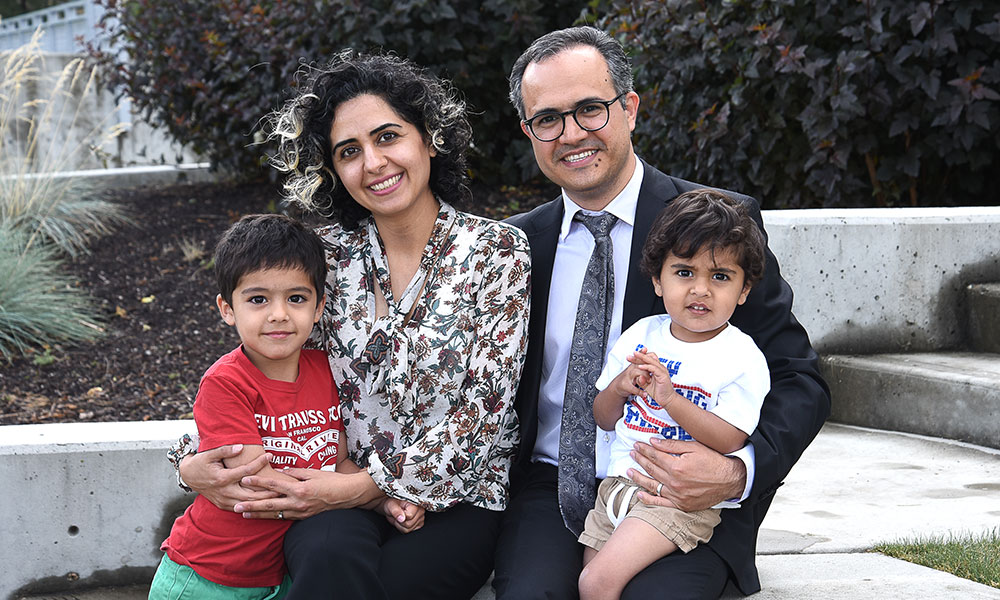
Zardadi and his wife first arrived in BC in 2014, when he had the opportunity to conduct a six-month research project while completing his PhD in Iran. They took advantage of the opportunity to explore Canada in the short amount of time they had, and after returning to Iran so Zardadi could graduate, the couple quickly came back and made Canada home.
But after four years of working in his newfound country — and despite already possessing a PhD in image processing — Zardadi decided to pursue a Master’s degree.
“Students in Canada learn how to solve problems with a local way of thinking. I knew that I needed to understand this to work with Canadian teams in the technology and data domain,” he explains.
“UBC has a stellar global reputation, so I had no doubt that the newly-created Master of Data Science program would be outstanding,” says Zardadi. “Belonging to the first MDS class inspired me to make history, so I got involved in the data science community while studying and became the first student to get a job offer in the program.”
Real-world discussions and projects help to evolve career
For John Perrott, attending UBC Okanagan wasn’t geographically life-changing; it was career-enhancing.
The Okanagan native earned his Bachelor of Business Administration from Okanagan College before building a successful career in community and economic development in Kelowna. In 2010, Perrott joined the City of West Kelowna as its first Economic Development Officer and spearheaded a number of initiatives, including forming the Westside Wine Trail and the Westside Farm Loop. In 2015 Perrott was recognized with two distinguished awards: the Okanagan College Young Alumni & Top 40 Under 40.
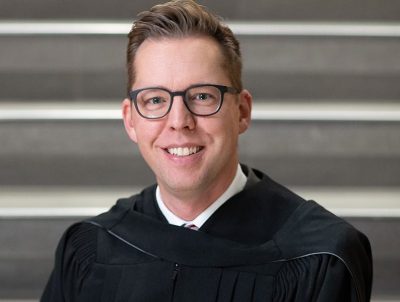
But despite this success, in 2017 Perrott decided to return to school.
“I wanted to continue moving forward and progressing in my career,” he says. “Grad school had been in the back of my mind for a while, but I needed to find the right program.”
“Many of the MBA programs I looked at required me to take courses that would be a rehash of what I learned in my BBA,” he explains. “The Master of Management program at UBCO was different: it had a more academic approach that incorporated real-world scenarios.”
The Master of Management program is designed for working professionals. As a cohort-based, blended delivery program, groups of 21 students work together through an online portal and come together each summer for a two-week intensive immersion.
Although Perrott was excited to be part of the program’s first cohort, he wasn’t sure what to expect in terms of course work, and how he would juggle working full-time and going to school part-time. Like many students, he also wondered whether his skills were up to par and how he would compare to his classmates.
But, Perrott’s trepidation quickly disappeared. “On the first day of class, the head of the program said, ‘We want to change your way of thinking. We will rewire your brain,’” Perrott recalls. “I was hooked immediately.”
“The cohort system was a huge plus,” he adds. “It was a great mix of people, some of whom were international, and we got to learn from each other and will continue to support each other. Like many things in life, people are what make it great.”
Although Perrott is disappointed that he can’t walk across the graduation stage with his fellow cohort members due to the COVID-19 pandemic, Perrott’s diploma hangs proudly in his office.
“I feel very fortunate to have been able to complete all of my post-secondary journey and gain a world-class UBC education here in the Okanagan,” he says.